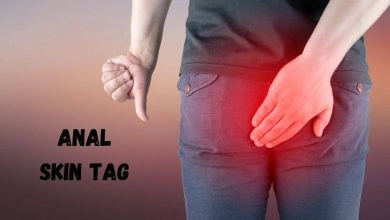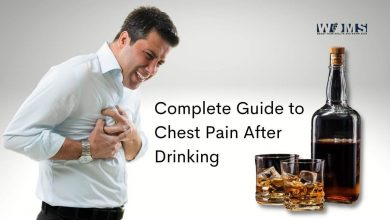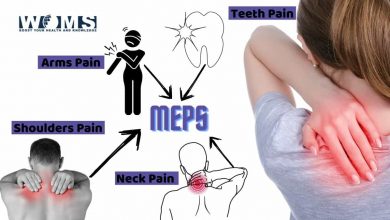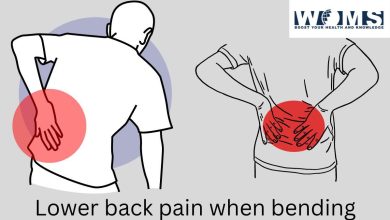Hip Pain from Running: Causes and Treatment

Running, being a healthy activity, offers a myriad of benefits to improve mood and multiple health concerns. But, it may induce multiple injuries to the joints and ligaments. Achy hips or hip pain from running is a common problem among beginners. Hip pain from running may have a variety of causes mainly due to stress and strain.
Hips can easily become taut and are less flexible during running or pressure conditions. In this way, it induces hip pain from running. This article encloses the basic details to explain the main causes of hip pain from running. In addition, you will also be able to manage this hip pain after reading the article.
What are the common causes of hip pain?
Hip pain from running is a common complaint among runners of all ages. It may happen whether you are a regular runner or not. The problem doesn’t seem as simple as the keyword dictates. There may be multiple underlying problems leading to this hip pain.
The hip joint is a ball and socket joint that connects the femur with the pelvis. This explains that the hip runs from the upper part of the pelvis to the base limit of your bottom. Considering them, your legs connect your lower body core to the main stabilizing trunk. This part is a complex of muscles, tendons, bones, nerves, and a variety of ligaments. Moreover, hip pain can also be a signal of any injury in your body. Here are some possible causes of hip pain from running.
Tendonitis
Tendonitis is an inflammation of the tendon that can cause hip pain. Tendons are the flexible fibrous tissue bands that connect muscle to bones. Running can cause sudden injury to the tendons. This sudden injury may cause tendonitis while running and is the leading cause of hip pain from running.
IT band syndrome
Iliotibial band syndrome is associated with the runners and felts along the outer side of the hips and knee. The iliotibial band is made up of connective tissue that joins the outer part of the hips with your knees and shinbone. While running, it may become tight and irritated due to overuse and continuous movements.
The most common symptoms include pain and tenderness in the thigh, hips, and knee. In addition, you can also feel a clicking or popping noise when you run or walk. Icing the affected area multiple times per day or taking NSAIDs can help you deal with the pain of iliotibial band syndrome. Moreover, stretches can help improve the strength and flexibility of your iliotibial band. Some severe cases may need steroid injections to get over the pain.
Muscle tendon bursitis
Muscle tendon bursitis is also a leading cause of hip pain. It arises when small fluid-filled sacs become inflamed to cause pain. These sacs cushion the bones and joints to provide smooth movement. Bursitis can arise from repetitive movements or sudden blows or falls. It may cause pain and tenderness in the hip joint. Bursitis is characterized by swelling, redness, and irritation of the hip joint.
Muscle tendon bursitis can be managed by resting properly from your daily activities until you get better. Icing the affected area can reduce swelling and inflammation. Sometimes, steroid-based injections are used to treat bursitis pain and inflammation. In addition, physical therapy exercises also help to train your hips and improve the strength of your hip joint.
Labral cartilage tear
The hip labrum is the cartilaginous connective tissue on the outer rim of your hip joint. It provides a cushioning effect and stabilizes your hips. Moreover, this cartilage secures the thigh bone within the hip socket. Labral tears can happen in the repetitive movement of running.
Labral tears can cause pain associated with clicking, locking, or catching sounds when you move. Mobility while running is usually limited and may cause stiffness. Visit your doctor if you suspect any hip labral tear for a physical examination, X-ray, or MRI. The other treatment plans may include physiotherapy exercises, NSAIDs, or corticosteroid injections to relieve pain and inflammation.
Osteoarthritis
Osteoarthritis is also a joint problem in which the cartilage of the hip joint breaks, splits, and becomes brittle. It is a severely painful condition of the joint and is common in older athletes. Loss of cartilage from the hip joint reduces the cushioning effect of the joint. It causes severe pain, irritation, and inflammation of the joint.
Osteoarthritis must be prevented as soon as possible. An anti-inflammatory diet and proper medication are helpful to relieve pain and improve joint flexibility. Moreover, physiotherapy or surgical procedures may be needed depending on the severity of the disease.
Hip bone fracture
Hip bone fracture is a serious injury associated with life-threatening complications. It usually occurs when the bone below the femur head fractures. This usually arises because of any sports injury, sudden fall, or accident.
Hip fracture is a common problem in old age people. Severe pain and swallowing are commonly associated with the hip bone fracture. You may find it difficult to carry any kind of weight or even move at all. Doctors suggest conservative management of symptoms to relieve pain and swallowing. Moreover, bone fractures may require repair or replacement of hip bone. Physiotherapy is all important even after surgical management of bone fractures.
Hip pointer
A hip pointer is a bruise mark on your hips from falling, kicking, or hitting something. The pointer area is usually sore or swollen. If you have any injury or bruise on your hips, take rest and avoid running. Follow some basic home remedies to reduce the bruise swelling.
What does the hip pain from running feel like?
Hip pain doesn’t feel like pain in a specific area. It usually feels like a generalized pain with varying intensity – having a sharp sudden pain that worsens on doing daily life activities to full pain. It indicates a stress type of fracture. Pain is usually a feature of severe problems and needs proper investigation.
How to treat hip pain from running?
Hip pain from running is associated with multiple symptoms. These symptoms explain the root cause and severity of pain. Some people may get relief just by taking a break from training or daily life activities for a few days. But, others may need proper medication and treatment to get relief from hip pain.
Doctors usually take a start by following conservative management to deal with basic symptoms. Severe cases may require rehabilitation exercises, surgeries, or injection therapies depending on the severity of the pain. Here are some basic tips to deal with hip pain from running.
- Avoid placing too much stress or strain on their hips while walking or running. It helps to reduce the training load and avoid any kind of hip injury.
- Place ice packs on the affected area for up to 20 minutes after every two to three hours.
- Prefer wearing a shock absorber and comfortable running shoes with a soft sole to avoid any sudden shock to the hip joint.
- Maintain moderate weight on the joint so as to avoid any extra strain on the joint.
- Take a start from gentle stretching exercises to tone and improve the hip muscles and tendons.
- Avoid carrying or lifting heavy weights.
- Avoid sitting in low chairs. It may place additional strain on the hip joints.
- If you are having severe pain, you may take NSAIDs for any hip injury or pain.
Recovery period
Pain is usually a feature of any injury or accident. It is important to take a break from running if you are having hip pain from running. Once you start feeling better, you can gradually take a start to your daily life activities. But, follow the protocols to avoid any kind of injury. A healthy diet can also accelerate the healing period. Maintain your balanced diet enriched with vitamin D and calcium to strengthen your bones.
Once you start feeling better, you can slowly reintroduce yourself to maintain your daily life activities.
Bottom line
Rest is of prime importance during the recovery phase. Hip pain from running is a common complaint among runners whether they do it regularly or just as a beginner. Following a healthy lifestyle is critical, but it may cause cramps, tendonitis, bursitis, or any other injury. Follow the protocols of gradually increasing your running program. Make your body habitual of running and then go for a gradual increase. If you are having continuous or recurring hip pain, visit your orthopedic doctor to acquire appropriate management of hip pain.
Frequently Asked Questions (FAQs)
How long does it take to heal from hip pain?
The recovery phase depends on the severity of the hip pain. It usually requires one to three weeks of rest and medication to get relief from pain and other symptoms.
How can I train my hips for running?
Train your hips properly before going for a tough exercise routine. Go for basic exercises first to train and strengthen your hip muscles and joints.




